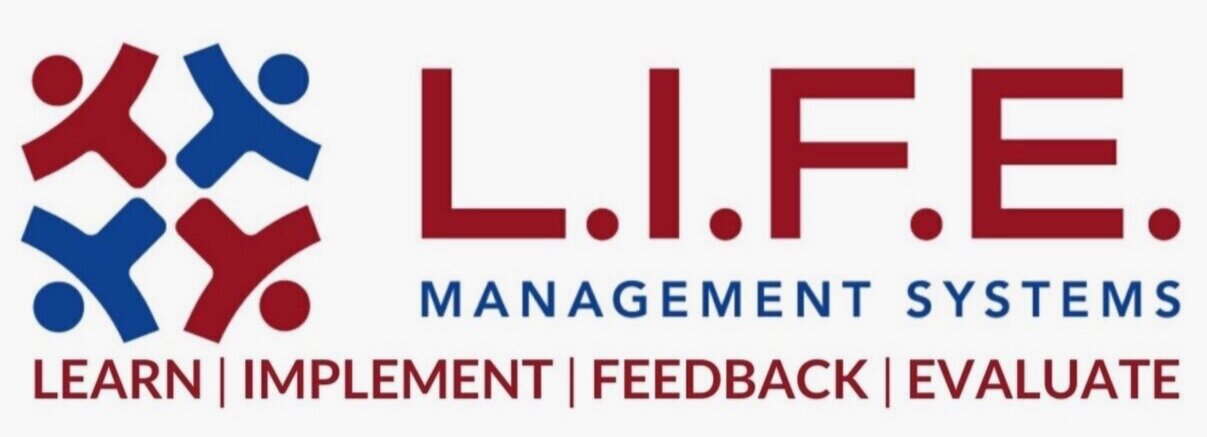Enhance your Leadership Success through Self-awareness
Leaders, it's time to get serious about self-awareness.
Knowing yourself and understanding how others see you is vital for any leader. It's the key to making better decisions and achieving your goals. You can become a more effective leader with a clear understanding of all these things.
The ability to self-reflect is one of the most essential leadership skills you can have as it allows for better decision-making and actions that are more aligned with your values and goals.
Awareness isn't just about being externally aware; internal awareness matters too! In this blog post, learn more about how you can enhance and develop the self-awareness you need to reach your full leadership potential.
SUMMARY
Self-awareness is a critical skill for all leaders. By taking an introspective look at their feelings, thoughts, values, and actions, leaders can begin to understand why they react to certain situations.
Recognizing triggers allows leaders to change their behavior to become more effective leaders. Self-awareness gives leaders the power to make well-thought-out conscious decisions.
Additionally, self-awareness gives leaders the ability to see the bigger picture and make decisions that align with the company's goals and values.
What is Self-Awareness?
It is the ability to know yourself, recognize how others see your strengths and weaknesses and understand your challenges. Why is this skill essential for leaders? Because self-aware leaders can manage their feelings, thoughts, values, and actions, which gives them more effective control over their decisions, activities, and relationships.
Self-awareness allows leaders to stay in control of their emotions and better understand what they are feeling and why. This skill helps leaders to keep their cool under pressure and make level-headed decisions.
Self-aware leaders can also self-reflect and monitor their thoughts and potential choices. So, should an opposing thought or option surface, leaders know how to deal with it constructively, which helps prevent dwelling on negative situations or making impulsive decisions. Look at this list on Indeed. com detailing the importance of self-awareness in leadership.
Enjoying the scenery and self-reflecting while on a recent nature walk!
The Importance of Self-Awareness
Now that we know the definition of this important topic, you're probably wondering why self-awareness is essential in the workplace? After all, doesn't the work environment require collaboration for successful team interactions? Yes it does, but sometimes, emotions, feelings and conflict creep into our daily interactions. While it's true that we all have some insight into our feelings and thoughts, many of us do not understand the positive or negative implications our emotions can have. Thus, applying your self-awareness skills comes in handy.
For example, if you notice that you routinely get stressed or tense before, during, or after a staff meeting, you can begin to reflect on what might be causing your stress and what you might do about it. Then, using your self-awareness and reflection, you can realize that distributing a prepared agenda before the meeting with specific time allotments would help the discussions stay on track and be more productive; thus, reducing everyone’s frustration level.
When leaders can take an introspective look at their options and reflect on their feelings and thoughts, they can begin to understand why they react to certain situations in specific ways. From there, leaders can start to make changes in their behavior. For example, if a leader notices that they get angry quickly, they can begin to work on managing that anger, so it doesn't boil over into hurtful words or actions. They might learn breathing and muscular relaxation skills to help them manage their tension and emotional reactivity.
Self-awareness also allows leaders to understand how their emotions affect those around them. For example, if a leader is constantly stressed, their team will likely pick up on that stress and be affected by it. On the other hand, if a leader can stay calm and collected, even in difficult situations, their team will likely follow suit. It's like the old expression, "What goes around, comes around."
Finally, self-awareness gives leaders the ability to see the bigger picture. When leaders are involved in day-to-day tasks, it can be easy to lose sight of the overall goal. However, when leaders are self-aware, they can step back and look at the situation as a whole, allowing them to make decisions that align with the company's goals and values. The self-aware leader is also more able to focus on the positive and what is working, which helps create an attitude of gratitude.
For a more focused view on self-awareness, let's take a look at how self-awareness from the perspectives of your internal and external perspective shapes our leadership presence in the workplace.
Internal Awareness
From an internal perspective, self-awareness is the ability to monitor your emotions, thoughts, and actions and understand your triggers, strengths, and weaknesses. Leaders need to be aware of their own emotions in order to manage them constructively. For example, if you know that you get angry quickly, you can learn how to deal with that anger constructively instead of lashing out at others.
External Awareness
As a manager, sometimes your intentions for your team are the opposite of the anticipated outcome. For example, you may want to increase your team’s productivity, but your team may interpret your attempt as being too aggressive and demanding. By talking with individual team members, you become more aware of how they see you and your approach. So, you try communicating with them again by using an assertive and encouraging approach (not so demanding, harsh and critical) and you get a positive response. Your change helped restore a positive working relationship with your team.
In the future, you can avoid misunderstandings by ensuring your communication (in person and in writing) is clear, concise, compassionate, and congruent when expressing your expectations to your team. Building trust with your team and creating an environment where everyone understands your focus and expectations is essential.
From an external perspective, self-awareness is the ability to understand how others see you, which includes understanding your impact on others and being able to receive feedback well. Leaders need to be aware of how they come across to others so they can adjust their behavior accordingly. For example, if you know you're not a morning person and you come across as being too demanding and abrupt in the morning, you can take steps to learn how to tone down your responses early in the day so that others don't feel overwhelmed by you.
Both internal and external self-awareness is essential for leaders. By understanding your own emotions and the impact you have on others, you can adjust your behavior to be the best leader possible.
A change of scenery helps refresh your mind!
Tips to Increase Your Self-Awareness
Increasing your self-awareness begins with realizing and accepting that personal and professional development is an ongoing, even daily project. Your growth doesn't occur by just taking a single class or reading a book. These efforts can be helpful but are only part of personal and leadership development.
It will be more helpful to engage in the process of regular reflection and enter your thoughts and insights into a self-awareness and personal development journal.
Here are some key areas and questions for personal reflection and learning to consider for your leadership development.
1. Values
What values do you hold near and dear to you? By answering this question, you can increase your self-awareness and leadership effectiveness.
Personally, I know my highest values of integrity, growth, and compassion must be reflected in my business. In my ongoing personal and professional development journey, understanding and reflecting on my values is essential for a fulfilling and successful business brand.
Clarifying my highest values has helped my clients to understand my purpose, making it easier to network professionally with business owners. Being clear about my values throughout the day has also given me more energy and enthusiasm for my efforts. What are your most important values?
2. Emotions
Can you identify and process your emotions in the heat of the moment? Do you take time to analyze and reflect on your feelings after an emotionally charged situation? Doing this can produce valuable increases in your self-awareness.
For example, if you reflect on your anger regarding a coworker, you might realize your anger wasn't just about what that person did or didn't do. Your anger might be related to your stress level, the lousy sleep you got the night before, or the fact that you were hungry, all of which are essential realities to remember next time you get angry. Remembering the old maxim, "When under stress, we regress," will also increase your self-awareness.
3. Decisions and Actions
How do you make decisions? Reflecting on your personal and professional choices can help you increase your self-awareness. For example, you can ponder whether to weigh current facts and data more heavily when deciding a matter, or give more weight to intuition and future possibilities.
Also ask yourself, do you prefer to make your decisions fairly quickly, or to wait till the last minute and allow pressure to build up before deciding? Knowing your decision-making style can be valuable when faced with high-stakes choices.
Do you want to be totally in control of your decisions and choices, or can you allow others to make some decisions with you? If you want to be in control of every decision, also known as a high-control preference, it may also be helpful to think about where your strong control needs originated. For example, your high control preference may have started with an overbearing and controlling authority figure somewhere during your history.
Once you figure out where and how your need to be in control began, you may be able to dial it down more readily for your benefit and those you work with, which may result in more effective collaboration and teamwork.
In my coaching work with managers, executives and leaders, I have found that feedback from certain assessment tools such as the Myers-Briggs type indicator (MBTI) and the Fundamental Interpersonal Relationship Orientation Behavior Scale (FIRO B), etc., have been very helpful in raising self-awareness, especially in these critical areas of interpersonal relationships, planning and decision-making.
4. Feedback from Others
Don't forget to ask others you trust for honest, constructive, and helpful feedback on how they see you and areas for your improvement. Make sure you can handle the feedback before you ask for it, so you won’t ruin your relationship. Also, be open to feedback from your team members and coworkers. Research shows that highly rated leaders are open to feedback from others. As the great management guru, Dr. Ken Blanchard says, "Feedback is the breakfast of champions."
Gathering helpful feedback might also mean utilizing a mentor or an executive coach to enhance your personal and professional development while raising your self-awareness.
An experienced coach may also use standardized assessment tools and validated questionnaires, such as the MBTI, the FIRO B, or various forms of 360° feedback. These instruments can provide you with efficient and valuable input on who you are, how you operate, your strengths and weaknesses, and how others see you.
As an executive coach, I have coached managers, executives, and leaders who've commented, "Wow, Dr. Lee, I never knew that before!" Or, "So that's why I haven't been promoted." Also, I’ve heard, "I wish I had known this 15 years ago because my career would have been a lot more successful, and I would've been much happier." As such, assessment tools greatly assist leaders in their professional development journey.
5. When to be Self-aware?
When should you be self-aware? Well, the answer to this question is "as often as possible." But being human and fallible, that's only a goal we can strive for, not a reality. Certainly, after a challenging situation or conflict, it is valuable to reflect on your feelings and what may be behind them.
It can also be helpful to think about what you might have done differently to get a better outcome. Additionally, it can be beneficial to set aside regular time to practice self-reflection and self-awareness.
One way I choose to practice self-reflection is by devoting time in the morning to meditate or journal about my feelings, goals, and the events of the coming day. In addition, if I remember any dreams or dream fragments, I try to figure out what they might mean for me and my life.
Finally, of course, others spend time at the end of the day reflecting on what worked and what didn't and how they might do things differently in the future.
Taking a nature walk is one way to self-reflect on your day!
Benefits of Self-Awareness
Self-awareness is a critical skill for leaders that allows you to know yourself, understand how others see you, recognize your challenges, and make better choices. Self-reflection on your leadership skills will place you on the road to a more focused and intentional work journey. Here are a few more of the many benefits of self-awareness for leaders:
1. Focused Professional Development
While many leaders take classes here and there or read a book when they have some downtime, without self-awareness, it isn't easy for them to focus on their development. How can you know what you need to work on if you're unaware of your challenges? Once you identify areas for improvement, though, focused professional development becomes possible and much more effective.
Once you have enhanced self-awareness, you have a clear developmental target to shoot for. For example, if you become aware that active listening or interpersonal communication is a weakness for you, you can focus your reading, learning, journaling, and possibly coaching on this area.
2. Consistency in Leadership Success
As leaders, our goal is to be successful and contribute to our organization's success year after year. However, if you aren't fully aware of who you are, the successful leadership outcomes you strive for might be hit or miss!
Ideally, the source of consistency in leadership success stems from what motivates you to get the job done in any given circumstances, and increased self-awareness enhances and clarifies that motivation. An example of successful leadership consistency would be a leader who always operates with integrity, regardless of the situation. Further, this leader would also be aware of what thoughts, feelings, values, and actions might lead to less-than-ideal outcomes and avoid these actions as best possible. Finally, the self-aware leader will also know when to delegate work to a team member with a more substantial skill set in a particular area.
3. Ease in Guiding Teamwork
When you know yourself well, it becomes much easier to guide teamwork. You'll be able to take into account the feelings and thoughts of others while also understanding your limits and capabilities. The benefits of this awareness allow for a more cohesive and successful team dynamic.
For example, if you know that you need time to process information before making decisions, you can take that into account when working on a team project. In addition, you'll be able to let others know what to expect from you and why certain things are essential to you.
In my organization, I have found that giving this type of feedback to those I work with can help avoid conflicts and misunderstandings. The results benefit my team and me by significantly decreasing tension and conflict!
4. Success in Managing Conflict
If you're aware of your feelings and reactions, it will be easier for you to manage conflict when working with others on your team. You'll be less likely to react impulsively or make decisions based on emotion. While this process doesn't mean that conflicts will never arise, self-awareness can help you approach conflicts more constructively. For example, if you know that you tend to get defensive when criticized, you can try to be more open-minded.
Conclusion
Becoming a self-aware leader is an ongoing journey that requires time, effort, and practice. However, by understanding the benefits of self-awareness, you can start working on becoming a more self-aware and effective leader today.
Remember, it's not about perfection; it's about continuous improvement. As you become more aware of yourself, you'll naturally become a better leader and provide value to others in your organization.
What are your thoughts on self-awareness? What have you found to be helpful in your leadership journey? I’m interested in hearing what works for you.
If you're interested in taking your leadership skills to the next level, contact me for information on how a leadership assessment can help you. I'd love to help you get started on this vital journey.




